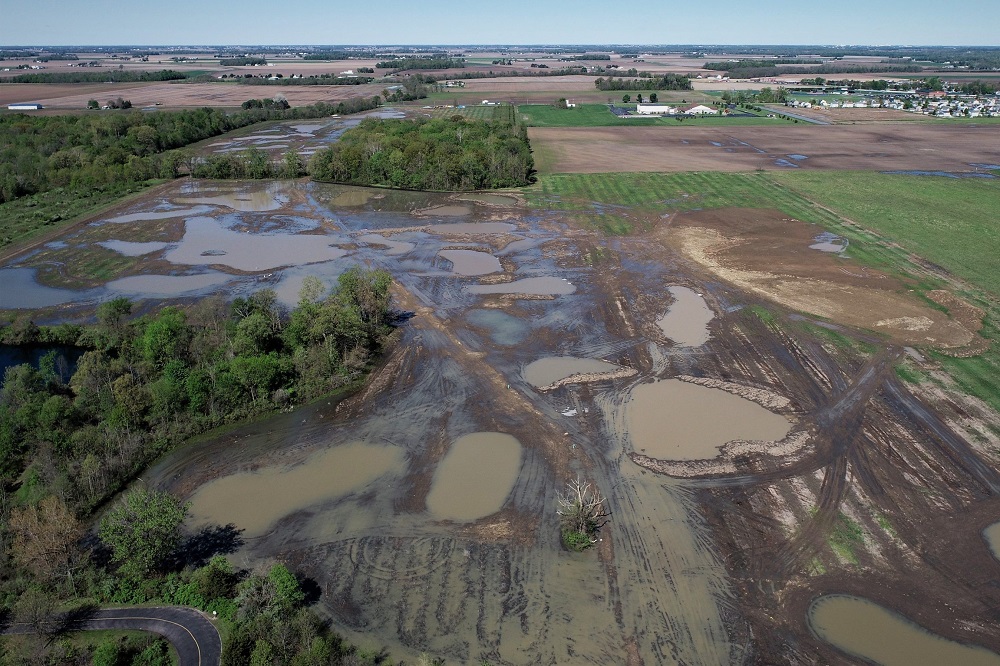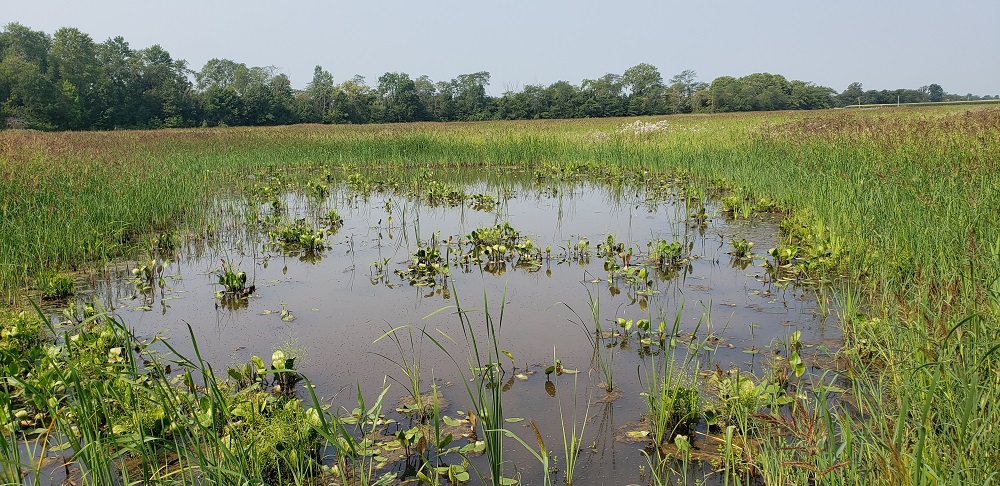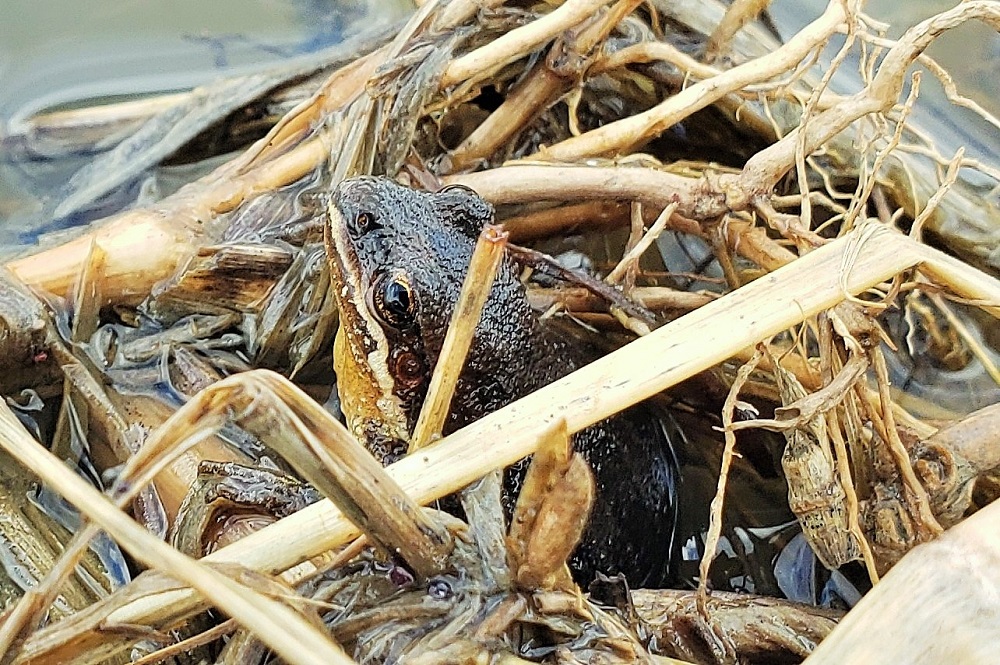Oakwoods Nature Preserve Wetland Restoration Project



Hancock Park District implemented a wetland restoration project, funded by two H2Ohio grants totaling approximately $1.4 million, at the Oakwoods Nature Preserve. The project site is a 125-acre area, the majority of which had been farmed for many years and was drained by an extensive series of subsurface drain tiles. Coldwater assisted with the completion of the grant applications and was responsible for site assessment, permitting, design, bid assistance, and construction management services.
Currently, sediment and nutrient loadings into western Lake Erie from the Maumee River watershed occur at very high levels. The project was designed to improve water quality within the Maumee River watershed by retiring marginal farmland, restoring approximately 60 acres of riparian floodplain wetlands, and enhancing riparian buffer along Aurand Run. Upland buffers and native prairies were planted to protect the restored wetlands and an adjacent forested wetland. Water quality was improved through interception, detention, and assimilation in restored floodplain wetlands; infiltration; and uptake of nutrients in wetlands, woodlands, and prairie.
The project serves as an important model for demonstrating how to more effectively manage agricultural runoff to reduce phosphorus and other nutrients in surface runoff and tile drain water. Repurposing and retiring marginal cropland serves to improve water quality while at the same time helping to maintain drainage that is needed to sustain farming in northwestern Ohio.
Plant diversity was restored throughout the Site by seeding and planting herbaceous and woody species in the floodplain, wetland, and adjacent buffer areas. The plantings included native wetland plugs, live stakes, shrubs, and trees. Throughout the restoration area, approximately 8,000 plugs, 1,100 trees, 1,100 shrubs, and 3,500 live stakes were planted in fall 2021.
Riparian Restoration
Wetland Restoration
Prairie Restoration
Re-forestation
Hydrologic & Hydraulic Modeling
Native Planting Plans
Invasive Species Control
Grant Writing
Biological Assessments
Environmental Permitting
Construction Management